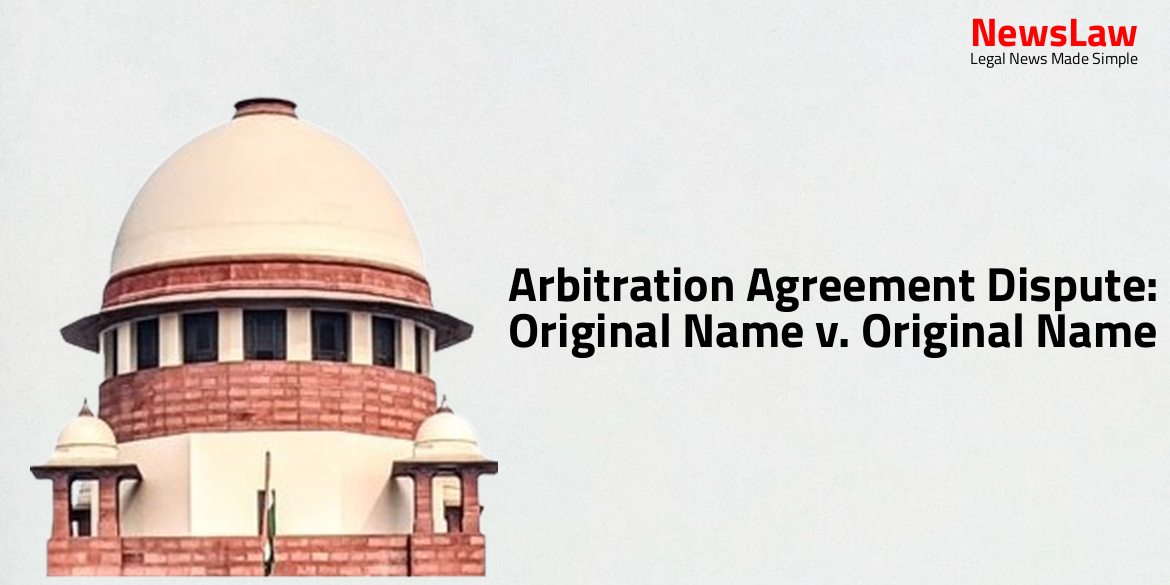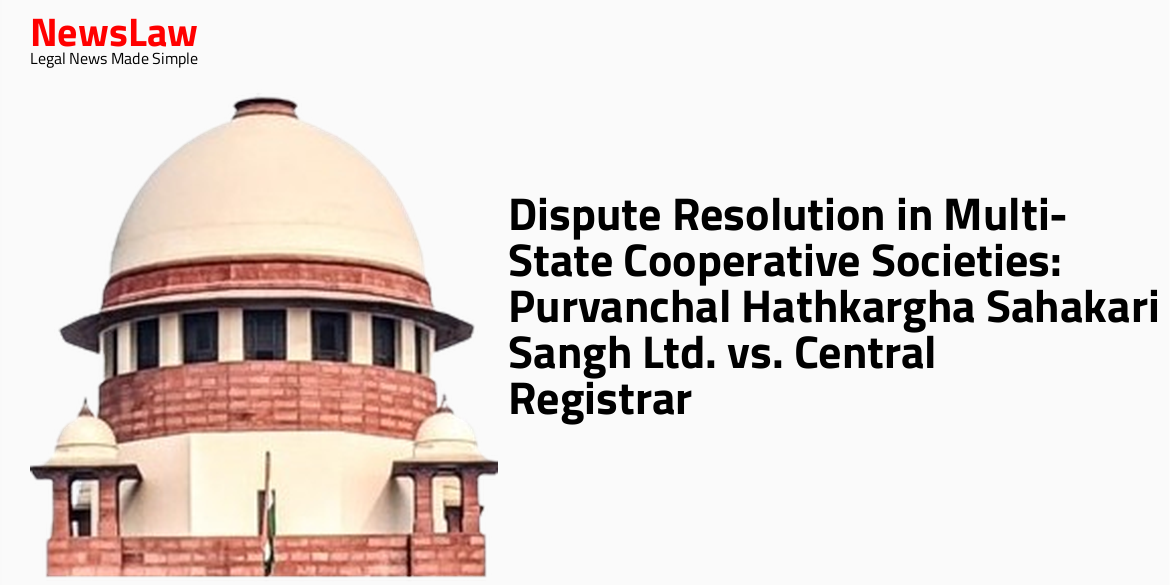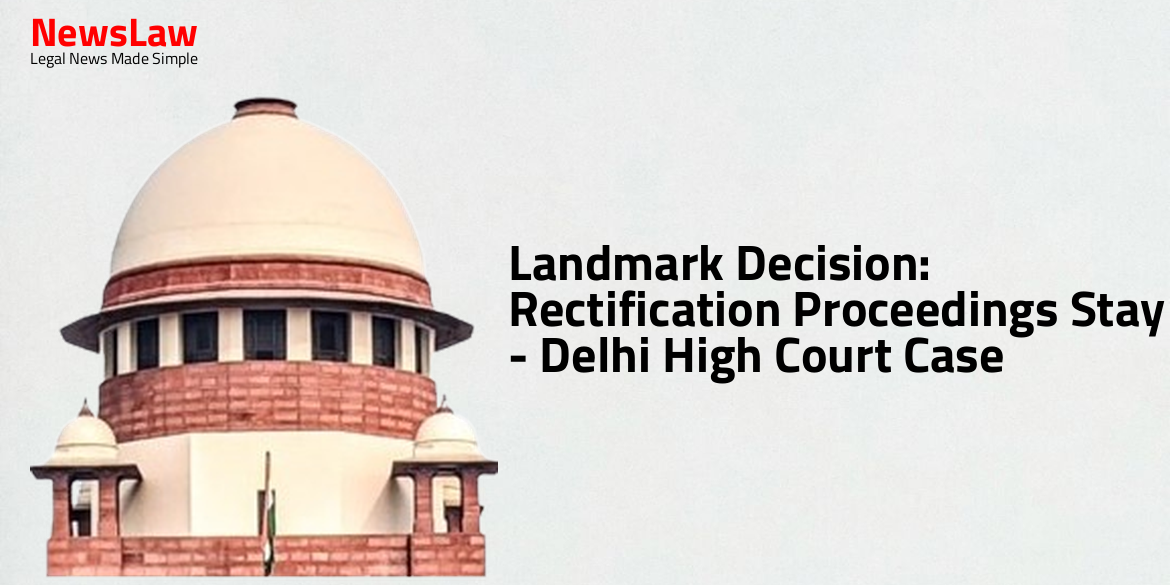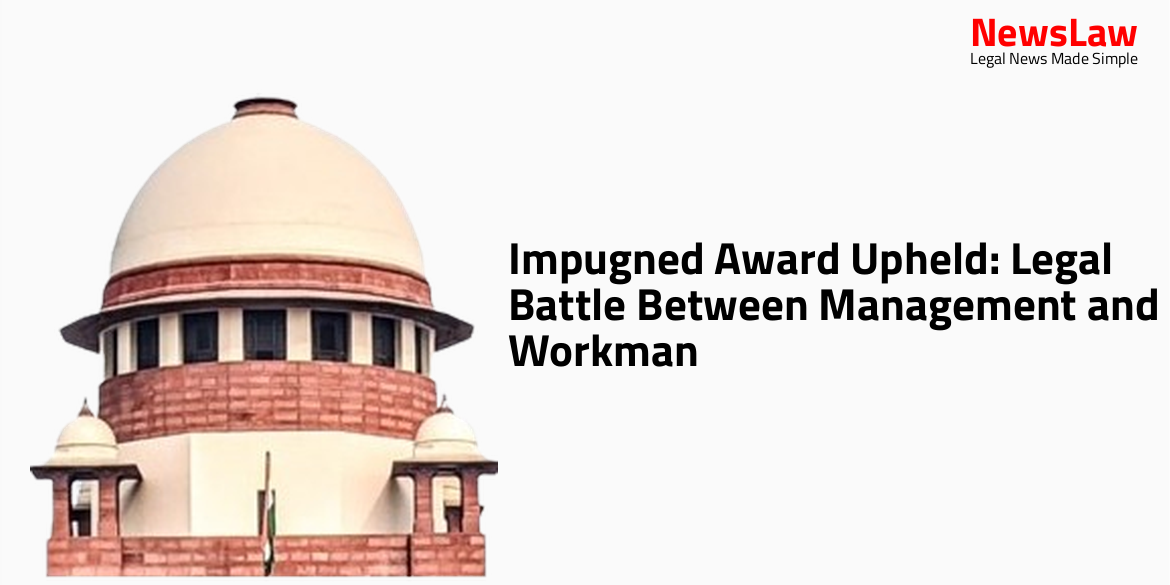Exploring a significant legal case heard by the Delhi High Court regarding disputes over arbitration agreements involving Original Name and Original Name. The court’s judgment sheds light on the complexities of arbitration clauses and their application in multi-party scenarios. Stay tuned for a detailed analysis of the ruling and its implications on arbitration law.
Facts
- The appellant claims to have been the sole distributor for the respondent in Samalkha, Haryana for eight years.
- An invoice was raised by the respondent for 20MT Urea but only 20MT Urea of value ₹1,10,754/- was supplied.
- The appellant had issued blank cheques to the respondent for filling the amounts, but disputes the debited amount of ₹2,97,000/-.
- Respondent supplied goods worth ₹6,30,242/- to another party without appellant’s instructions.
- Appellant seeks recovery of ₹6,47,262/- from the respondent based on non-provided value.
Arguments
- Mr. Sehgal, the learned counsel for the appellant, argues that the parties cannot be referred to arbitration because the subject matter of the suit includes a claim against respondent no. 2 (original defendant no. 4 in the suit).
- There is no Arbitration Agreement between the appellant and respondent no. 2.
- The respondent relies on the decision of the Supreme Court in Sukanya Holdings (P) Ltd v. Jayesh H. Pandya & Anr : (2003) 5 SCC 531.
- The respondent also cites the decision of the Division Bench of this Court in Ameet Lal Chand Shah & Ors v. Rishabh Enterprises & Anr : 2017 SCC OnLine Del 7865.
- These decisions support the contention that the parties in this case could not be referred to arbitration.
Analysis
- Any dispute or difference arising out of this contract will be settled through arbitration.
- The arbitration process will follow the Rules of Arbitration of the Arbitration and Conciliation Tribunal of the Federation of Commerce and Industry (FACT).
- The award resulting from the arbitration process will be binding on the parties involved.
- The causes of action against the two respondents are different.
- The appellant has combined separate causes of action in the suit.
- The relief sought against respondent no.2 is for goods supplied, distinct from the relief sought against respondent no.1.
- The appellant’s relief against respondent no.1 is for the recovery of payment or value.
- The court found no issue with considering disputes against respondent no.1 as falling under the arbitration agreement.
- The appellant cannot avoid the arbitration agreement by framing the claims in a specific manner.
- The appellant’s reliance on the decision in Sukanya Holdings (P) Ltd v. Jayesh H. Pandya & Anr. is misplaced.
- The court found the appellant’s argument based on the mentioned case to be incorrect.
- The case cited by the appellant was not considered relevant or applicable to the current situation.
- The application to refer parties to arbitration cannot be denied if added to circumvent the arbitration agreement.
- Disputes against Original Names are within the scope of the arbitration agreement.
- The decision in Sukanya Holdings (P) Ltd v. Jayesh H. Pandya & Anr. highlighted that causes of action cannot be split.
- Section 8 of the A&C Act was amended in view of the 246th Law Commission Report, ensuring a conclusive determination on the existence of the arbitration agreement.
- The application for arbitration referral must be accompanied by the original or certified copy of the arbitration agreement.
- Proviso (ii) of the amendment outlines a two-step process for the judicial authority in considering arbitration referral applications.
- Causes of action cannot be bifurcated between the Arbitral Tribunal and the Court.
- The Commercial Court’s decision to allow the application under section 8 of the A&C Act is upheld.
- Appellant can proceed with a separate action against respondent no.2 if it is maintainable according to the law.
- The appeal is disposed of, and the appellant is directed to appoint an Arbitral Tribunal in accordance with the law.
Decision
- The arguments presented by Original Name were not found convincing.
- Original Name failed to provide substantial evidence to support their claims.
- The observations made by the court did not favor Original Name’s appeal.
- The dismissal of the appeal was based on the lack of compelling arguments from Original Name.
Case Title: JAIBHAGWAN Vs. SRIRAM FERTILILZERS AND CHEMICALS & ANR. (2024:DHC:3714-DB)
Case Number: FAO (COMM)-86/2024



